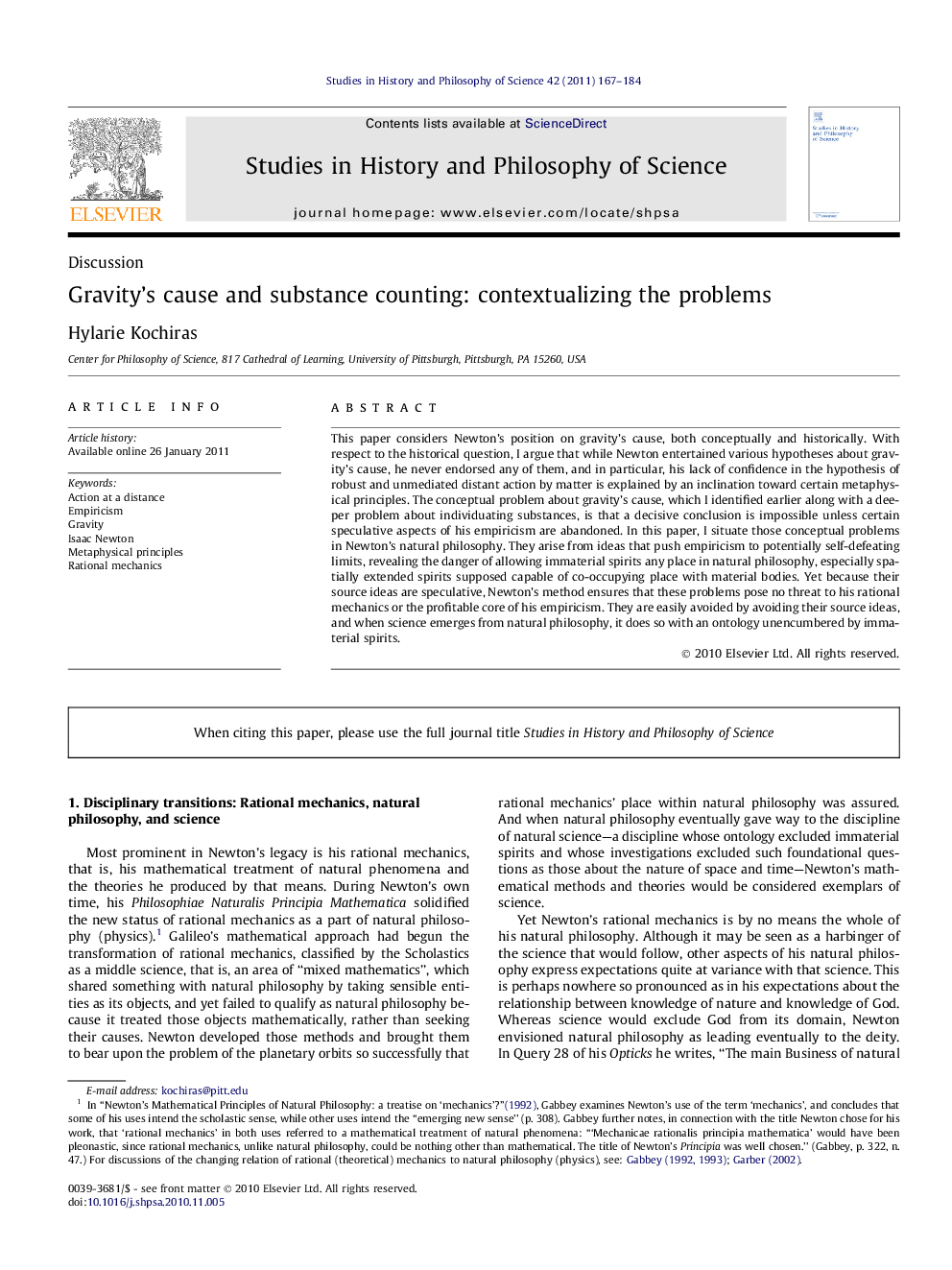| Article ID | Journal | Published Year | Pages | File Type |
|---|---|---|---|---|
| 1160570 | Studies in History and Philosophy of Science Part A | 2011 | 18 Pages |
This paper considers Newton’s position on gravity’s cause, both conceptually and historically. With respect to the historical question, I argue that while Newton entertained various hypotheses about gravity’s cause, he never endorsed any of them, and in particular, his lack of confidence in the hypothesis of robust and unmediated distant action by matter is explained by an inclination toward certain metaphysical principles. The conceptual problem about gravity’s cause, which I identified earlier along with a deeper problem about individuating substances, is that a decisive conclusion is impossible unless certain speculative aspects of his empiricism are abandoned. In this paper, I situate those conceptual problems in Newton’s natural philosophy. They arise from ideas that push empiricism to potentially self-defeating limits, revealing the danger of allowing immaterial spirits any place in natural philosophy, especially spatially extended spirits supposed capable of co-occupying place with material bodies. Yet because their source ideas are speculative, Newton’s method ensures that these problems pose no threat to his rational mechanics or the profitable core of his empiricism. They are easily avoided by avoiding their source ideas, and when science emerges from natural philosophy, it does so with an ontology unencumbered by immaterial spirits.
